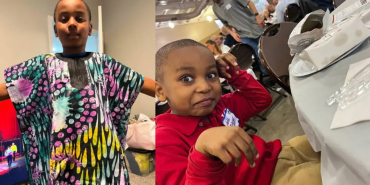Michelle Watiki Leaves Rolls-Royce to Launch Tech Startup in Nairobi

Amidst a growing trend of African diaspora professionals returning to the continent, Michelle Watiki, a 27-year-old engineer-turned-entrepreneur, has left a promising career in Britain to tackle the data challenges within Kenya’s fast-moving consumer goods (FMCG) sector.
Watiki's startup, Duck, aims to revolutionise data accessibility and analytics for brands operating in East Africa’s modern trade retail environment. Before founding Duck, Watiki meticulously crafted a career trajectory in the UK. At 16, she developed a ten-year plan focused on achievement, financial security, and self-sufficiency. This led her to Aston University, where she studied chemical engineering after narrowly missing entry to more selective institutions.
At Aston, Watiki focused on developing her leadership skills. She transformed the African Caribbean Society into a hub for professional opportunities, facilitating campus visits from prominent firms such as KPMG and helping students secure internships. Her academic pursuits culminated in a Master’s degree in Advanced Chemical Engineering, paving the way for a position at Rolls-Royce, the British engineering conglomerate.
Watiki quickly advanced at Rolls-Royce. Starting with an internship, she transitioned to full employment and strategically shifted her focus from aerospace to nuclear engineering, aligning with her academic expertise. She expanded her role beyond technical responsibilities, mentoring graduate cohorts, leading internal early career initiatives, and spearheading diversity programmes aimed at improving inclusion for underrepresented talent in STEM fields.
Despite her accomplishments, Watiki grew disillusioned with the corporate environment. She observed the slow pace of systemic change and the limited representation of women of colour in senior leadership positions. She came to the realisation that comfort could stifle ambition.
“I began to understand that greatness rarely emerges from comfort zones,” she says.
The sense of isolation she experienced, particularly after purchasing a home in a predominantly white British town, highlighted a disconnect between outward success and personal fulfilment. Watiki began exploring opportunities in sectors such as international development and climate technology. A chance encounter with Kenyan entrepreneur Alex Mativo led to the creation of Duck, designed to address critical data deficiencies in Africa's FMCG sector.
Duck's platform offers real-time sales and stock analytics for brands navigating East Africa’s complex modern trade retail landscape. In a region where sales representatives and merchandisers often rely on manual data logging, Duck integrates directly into supermarket point-of-sale (POS) systems. This provides brands with real-time insights into stock availability, shelf performance, and detailed customer purchase behaviours.
By combining loyalty card data with basket analysis, Duck provides consumer insights that were previously inaccessible to many FMCG companies. According to Watiki, this data deficiency results in logistical and strategic challenges for companies operating in the region.
“Brands deliver products but often lack visibility into how they perform at the shelf,” she explains.
This lack of insight leads to missed opportunities, inefficient promotions, and revenue losses. Duck empowers commercial teams to make informed decisions about pricing, placement, and inventory management with a speed that traditional systems cannot match, offering granular sales breakdowns. Currently operating in Kenya, Duck collaborates with major retailers and brands, and has established partnerships with institutions such as RETRAK—the Retail Trade Association of Kenya—to advance industry-wide standards for data-driven retail strategy.
The startup plans to expand into other East African markets, aiming to become the continent’s leading FMCG intelligence platform. Watiki is driven by a desire to reshape the narrative of African entrepreneurship. She acknowledges the emotional challenges of launching a startup, particularly as a young Black woman operating in an environment where legitimacy and intentions are scrutinised.
“Some people will wait to see if you’re serious,” she observes. “Resilience is showing them you are.”
Watiki attributes her successful recruitment decisions to prioritising emotional commitment and strategic clarity among team members. She believes intelligence identifies problems, but resilience is essential for solving them. Watiki’s decision to leave Rolls-Royce for a tech startup in Nairobi reflects a growing trend among African diaspora professionals seeking to drive change in their home countries.
Rather than being passive recipients of development aid or foreign investment, entrepreneurs like Watiki are building Africa’s infrastructure from within, using their lived experiences and understanding of systemic gaps.








Add new comment